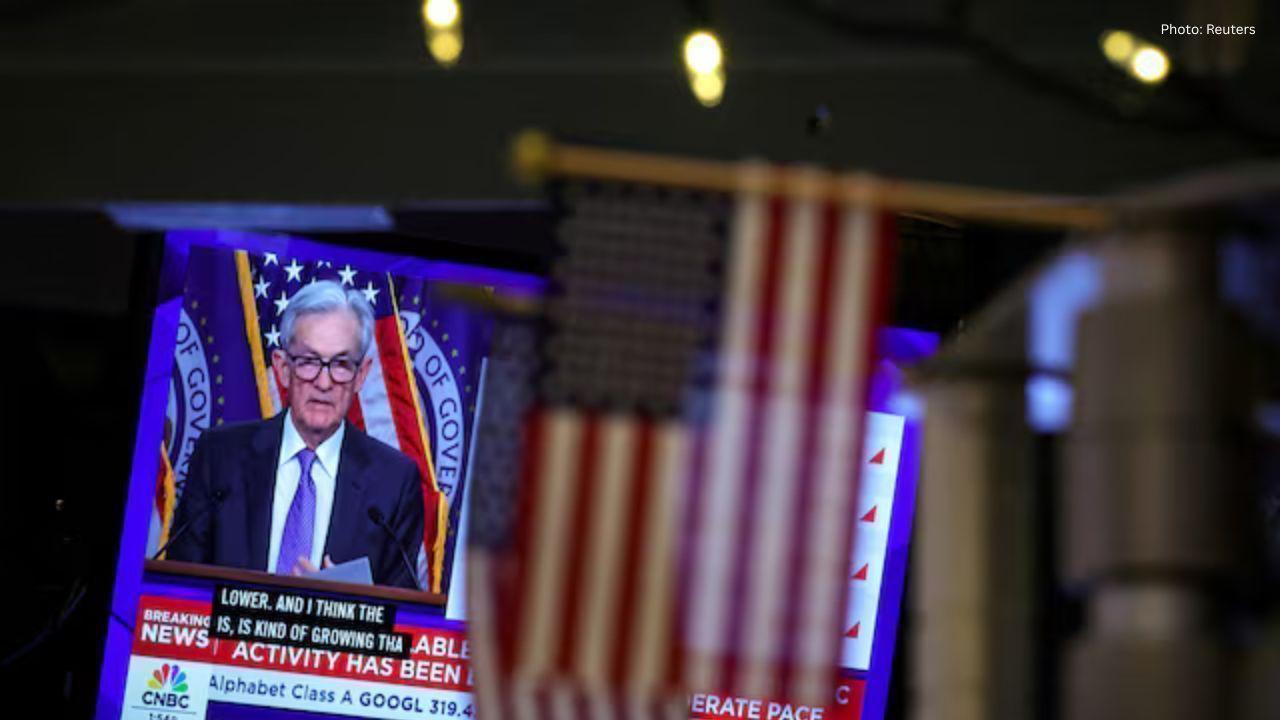You have not yet added any article to your bookmarks!

Join 10k+ people to get notified about new posts, news and tips.
Do not worry we don't spam!

Post by : Anis Farhan
Entrepreneurship in Asia has long been associated with buzzing offices, large teams, and well-funded startups that aim to grow rapidly by sheer scale. However, a quiet revolution is underway: the emergence of “one-person unicorns.” These are startups founded and run by individuals—or extremely small teams—that achieve massive valuations and global recognition without relying on sprawling workforces. This shift marks the rise of startup minimalism, where the strength of ideas, technology, and networks matter more than physical headcount.
In an age where artificial intelligence, automation, and global connectivity allow individuals to operate at the scale of entire organizations, the dream of building a unicorn has never been more accessible. Solo founders in Asia are showing the world that resourcefulness, creativity, and lean execution can rival traditional startup structures. But as inspirational as this trend sounds, it also raises questions: Can one-person unicorns be sustainable in the long run? And what does this mean for the future of work, innovation, and entrepreneurship in Asia and beyond?
Several factors have converged to create fertile ground for one-person unicorns across the region. First, Asia’s digital transformation has been extraordinary. From rural villages adopting mobile payments to megacities becoming testbeds for AI, technology adoption has outpaced global averages in many parts of Asia. This gives solo entrepreneurs access to tools and markets that once required massive infrastructure.
Second, the cost of building and scaling a digital business has dropped significantly. Cloud services, AI-driven design tools, low-code platforms, and global gig marketplaces allow founders to run companies with minimal overhead. A single founder with a laptop can now outsource customer support, automate marketing campaigns, and even manage supply chains.
Finally, cultural factors play a role. Many Asian societies emphasize resilience, adaptability, and efficiency. Solo founders often see minimalism not as a constraint but as an opportunity to stay lean, flexible, and focused.
One-person unicorns are not building empires through sheer willpower alone—they are riding the wave of advanced technology. Key enablers include:
Artificial Intelligence: Solo founders use AI to analyze markets, personalize customer experiences, and automate processes. Tasks like writing code, generating visuals, and even managing finances can now be handled by AI tools.
Cloud Infrastructure: Scalable cloud platforms allow startups to handle millions of users without building physical data centers. This levels the playing field between a solo founder and a corporate giant.
Gig Economy Platforms: Freelancers across the world provide design, development, and operational support on demand. Instead of hiring full-time teams, solo founders rely on flexible talent pools.
Social Media & Digital Marketing: Building a brand no longer requires big budgets. Creative campaigns on TikTok, Instagram, or YouTube can reach global audiences overnight.
Together, these technologies allow a single founder to operate at a scale once reserved for heavily staffed startups.
Though rare, stories of one-person unicorns are increasingly making headlines. For instance, in Asia, a handful of founders have leveraged minimal resources to achieve valuations in the hundreds of millions, with some touching unicorn status.
These founders often come from diverse backgrounds: software engineers who built apps in their bedrooms, financial professionals who developed fintech tools on the side, or creators who turned personal projects into thriving businesses. Their stories capture the imagination because they defy the notion that success requires armies of employees.
One inspiring trend is the rise of solopreneur-driven fintech platforms in Southeast Asia, where mobile-first populations create fertile ground for digital payments, lending, and wealth management tools. Similarly, niche e-commerce ventures led by individuals in China and India have scaled dramatically using global logistics platforms and viral marketing.
The rise of one-person unicorns reflects advantages that traditional startups sometimes lack:
Agility: With no bureaucracy or hierarchy, decisions are made quickly.
Lower Costs: Minimal overhead allows funds to go directly into product development and customer acquisition.
Focus: Solo founders often have a crystal-clear vision and are less distracted by internal politics.
Global Reach: Technology allows immediate access to international markets without building physical offices.
Creative Freedom: Without large teams or investors dictating direction, founders enjoy greater autonomy.
These advantages help explain why many young entrepreneurs in Asia aspire to replicate the model.
Of course, running a billion-dollar company alone comes with immense challenges. Burnout is a constant risk, as solo founders carry the weight of vision, execution, and strategy. Without co-founders or teams, decision-making can become isolating, leading to mistakes or blind spots.
Scaling is another concern. While digital tools handle growth up to a point, larger companies require human interaction, partnerships, and legal compliance that one person may struggle to manage. Trust also becomes an issue—investors, customers, and regulators may be skeptical of a company led solely by one individual.
Finally, sustainability is uncertain. Can one-person unicorns thrive for decades, or will they eventually need to evolve into traditional startups with teams and executives? These questions highlight that while the model is groundbreaking, it may not be universally applicable.
Interestingly, investors are beginning to warm up to solo founders. Venture capital firms that once hesitated to back one-person startups are now realizing that lean operations often deliver better returns. Low burn rates, rapid growth, and a strong founder vision make these companies attractive.
That said, investors still look for signs that the founder can scale responsibly. Many encourage solo founders to eventually bring in leadership teams or advisors to provide balance and long-term stability. The blend of minimalism and strategic expansion may represent the best path forward.
The phenomenon of one-person unicorns also signals a cultural shift in Asia’s entrepreneurial landscape. Success is no longer measured only by the size of a company’s workforce or the grandeur of its office space. Instead, efficiency, creativity, and global impact are becoming the true markers of achievement.
This shift resonates strongly with younger generations, who prioritize freedom, flexibility, and impact over traditional corporate ladders. The idea that a single founder can change the world with just a laptop and determination is empowering a new wave of dreamers across Asia.
Looking ahead, startup minimalism is likely to grow, but its trajectory will vary across industries. Sectors like software, content creation, and fintech are ideal for one-person unicorns because they rely on digital scalability. On the other hand, industries like manufacturing or logistics may require larger teams and infrastructure.
The key takeaway is that the myth of size as a prerequisite for success is fading. In the future, we may see a hybrid model where solo founders leverage automation and AI to scale but gradually build small, specialized teams for long-term resilience.
What remains certain is that Asia’s one-person unicorns are reshaping global perceptions of entrepreneurship. They prove that innovation is not about how many people sit in an office but about how powerful an idea can be when executed with clarity, discipline, and vision.
Startup minimalism, embodied by Asia’s one-person unicorns, represents a new chapter in global entrepreneurship. These founders are challenging conventional wisdom, showing that billion-dollar ideas can emerge from small beginnings, and proving that ambition can outpace scale.
While challenges remain, particularly around sustainability and scalability, the movement reflects a broader truth: in today’s hyper-digital world, one individual with the right tools and mindset can indeed rival entire corporations. For aspiring entrepreneurs, this is both an inspiration and a challenge to rethink what it takes to build something truly extraordinary.
This article is for informational purposes only and does not constitute investment advice. Readers are encouraged to seek professional guidance before making entrepreneurial or financial decisions.










Rashmika Mandanna, Vijay Deverakonda Set to Marry on Feb 26
Rashmika Mandanna and Vijay Deverakonda are reportedly set to marry on February 26, 2026, in a priva

FIFA Stands by 2026 World Cup Ticket Prices Despite Fan Criticism
FIFA defends the high ticket prices for the 2026 World Cup, introducing a $60 tier to make matches m

Trump Claims He Ended India-Pakistan War, Faces Strong Denial
Donald Trump says he brokered the ceasefire between India and Pakistan and resolved eight wars, but

Two Telangana Women Die in California Road Accident, Families Seek Help
Two Telangana women pursuing Master's in the US died in a tragic California crash. Families urge gov

Ranveer Singh’s Dhurandhar Roars Past ₹1100 Cr Worldwide
Ranveer Singh’s Dhurandhar stays unstoppable in week four, crossing ₹1100 crore globally and overtak

Asian Stocks Surge as Dollar Dips, Silver Hits $80 Amid Rate Cut Hopes
Asian markets rally to six-week highs while silver breaks $80, driven by Federal Reserve rate cut ex